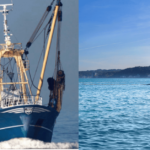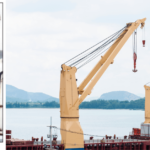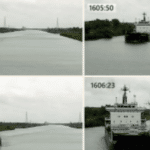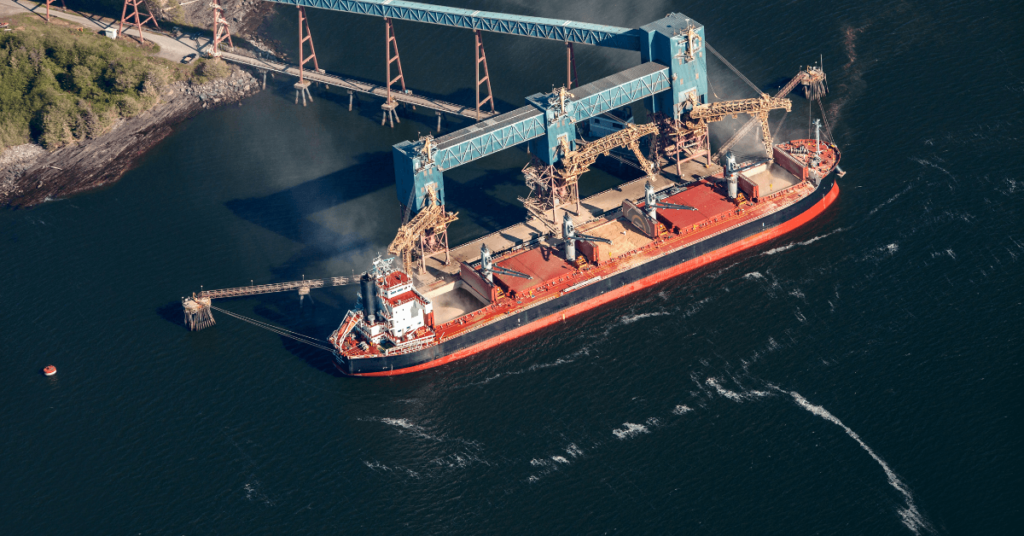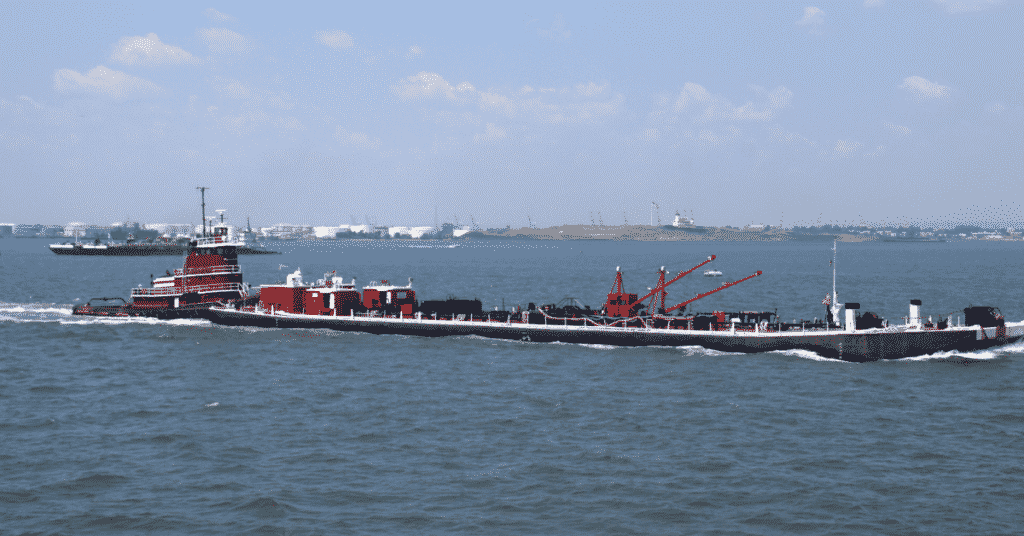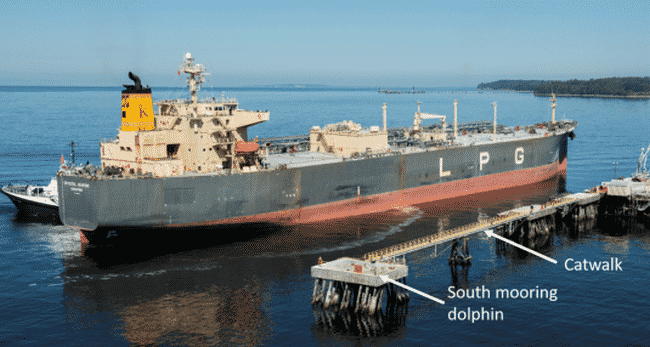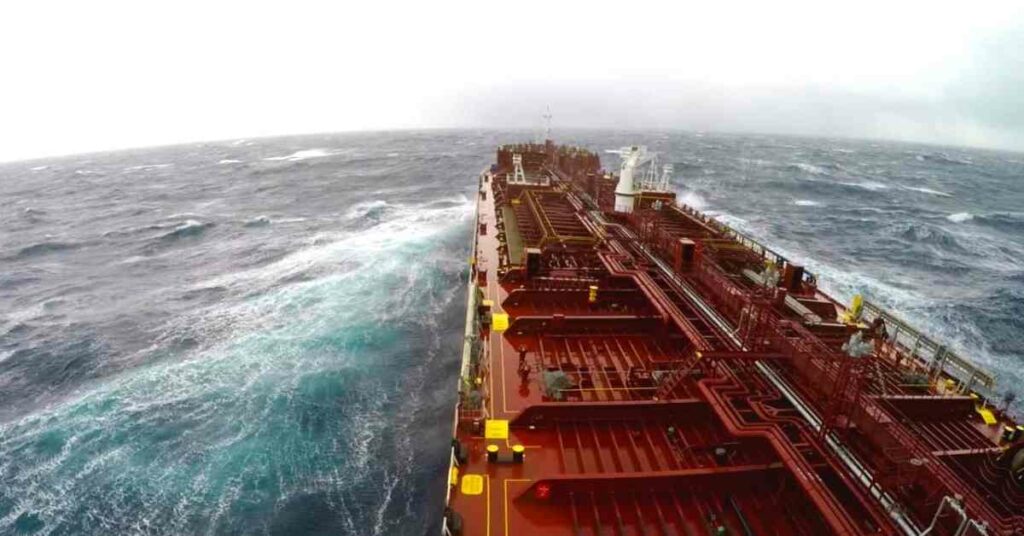Real Life Incident: Crane Boom Falls Into Ship’s Hold
A general cargo vessel was in port loading packaged timber. The ship was moored to a large barge equipped with a knuckle boom crane. This was being used to load the ship, together with one of the ship’s own cranes. Two stevedores worked together in the ship’s cargo hold, directing the loading and uncoupling the sling. No other member of the stevedoring team was on board to act as signalman or hatch boss to supervise and control the loading operation from the ship’s deck.
The ship’s crane had difficulties reaching certain zones of the cargo hold; this resulted in the crane arm being operated close to or even beyond its lower limit. When cargo handling had been ongoing for around a day and a half the topping cable released from the winch drum and the crane arm fell into the cargo hold, landing about half a metre from the stevedores. Fortunately, there were no physical injuries.
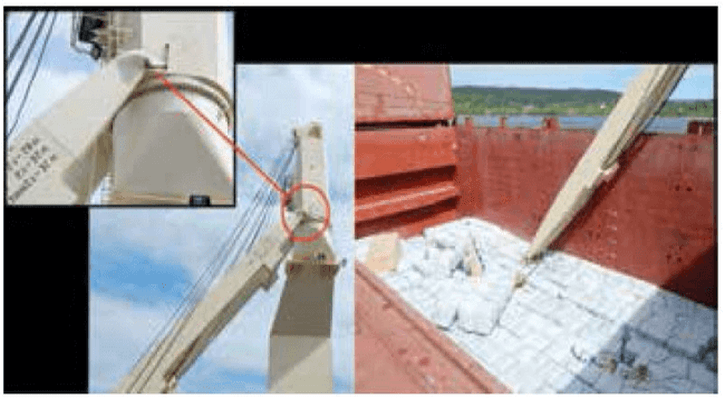
The official SHK investigation found, among other things, that:
- The ship’s crane had been modified. An extra switch had been installed which, when activated, bypassed the crane’s limit switches for maximum lowering. It appears the modification had been made by a previous operator and crew. The reason for the modification could not be determined. Bypassing the limit switches allowed the crane boom to be lowered to a level which was too low for cargo handling, and to a point where there was not enough cable remaining on the winch drum to hold the combined weight of the crane boom and cargo load.
- The present crew, relatively new to the ship, had not discovered the bypass switch during the course of their own inspections.
- The crane operator did not perform a full operational check of the crane before the start of lifting manoeuvres. Such a check may well have helped in the discovery of the nonconforming bypass switch.
Lessons learned
- Never bypass safety equipment such as limit switches.
- Always do full operational tests before using cargo handling equipment.
- Always use a signalman during cargo operations.
Reference: nautinst.org
Do you have info to share with us ? Suggest a correction
- Real Life Incidents: Near Miss In Open Water And Good Visibility
- Real Life Incident: Poor Situational Awareness Leads to Collision
- Real Life Incident: Monkey’s Fist Knocks on Office Window
- Real Life Incident: Paint Storage Slip-Up On Ship
- Real Life Incident: Checklist Mentality Is A Burning Problem
- Real Life Incident: Vessel Speed Exacerbates Bank Suction
Latest Case studies Articles You Would Like:
Subscribe To Our Newsletters
By subscribing, you agree to our Privacy Policy and may receive occasional deal communications; you can unsubscribe anytime.





